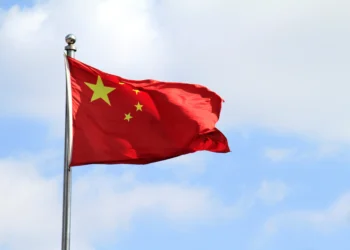The U.S.-China trade negotiations have hit a standstill, with officials anticipating that a breakthrough may require direct intervention from Presidents Donald Trump and Xi Jinping.
The United States and China have reached a deal to establish a trade consultation mechanism, following two days of high-stakes negotiations in Geneva, Switzerland, earlier in May.
However, discussions between the world’s two largest economies have progressed slowly despite earlier optimism following a temporary truce in the trade war, according to U.S. Treasury Secretary Scott Bessent.
Talks struggle to advance
Speaking to Fox News, Bessent acknowledged that while the negotiations had previously shown signs of progress, recent talks have struggled to advance. However, he expressed confidence that discussions will resume in the coming weeks.
“I believe we may at some point have a call between the president and party Chair Xi,” Bessent stated. “Given the magnitude of the talks, given the complexity, this is going to require both leaders to weigh in with each other.”
He emphasized the strong relationship between the two heads of state, asserting that China will likely re-engage in discussions once President Trump outlines his preferences on the matter.
Underlying trade disputes unaddressed
The temporary U.S.-China agreement, which put a 90-day pause on escalating tariffs, initially triggered a global stock market rally.
- However, the deal did not address the underlying trade disputes, including concerns over China’s state-driven economic policies, issues that are expected to be revisited in future negotiations.
- Since securing the May agreement, the Trump administration has shifted its focus to trade talks with other major economies, including India, Japan, and the European Union.
- Last week, Trump threatened to impose 50% tariffs on EU goods, though the move was later postponed.
Adding to the complexity, a U.S. trade court ruled on Wednesday that President Trump had exceeded his authority when imposing tariffs on imports from China and other nations under an Emergency Powers Act. However, within 24 hours, a federal appeals court reinstated the tariffs, stating that it would review the government’s appeal. The appeals court ordered plaintiffs to respond by June 5 and the administration to submit its argument by June 9.
Negotiations continue with other trading partners
Despite ongoing legal challenges, Bessent reiterated that negotiations with other trading partners continue.
He noted that some countries, including Japan, were engaging in good-faith discussions, adding that he will meet with a Japanese delegation on Friday in Washington.
As trade tensions persist, experts warn that the uncertainty surrounding U.S.-China negotiations could have long-term economic consequences, affecting global supply chains, financial markets, and diplomatic relations.
What you should know
- The agreement in Geneva signaled a de-escalation in the ongoing trade war between the two economic superpowers.
- The meeting marks the first breakthrough in months, after a period of escalating economic tensions fueled by 145% tariffs on Chinese imports and 125% levies on American goods.
- According to the joint statement after the meeting, the US will temporarily lower its overall tariffs on Chinese goods from 145% to 30%, while China will cut its levies on American imports from 125% to 10%.




















